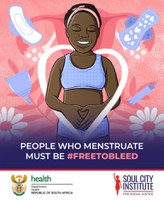
The Journey So Far: International Day of Action for Women’s Health 2025

This day is a testament to the resilience of generations of women: women who fought tirelessly for our rights, challenged oppressive norms, and sparked movements that continue to empower us to demand more. This is the essence of the International Day of Action for Women’s Health a day that reminds us that the struggle to secure adequate healthcare for all women, especially those most marginalized, is far from over.
Sexual and Reproductive Health Rights: Basic Human Rights
Sexual and reproductive health rights (SRHR) refer to the fundamental right of individuals to make informed decisions about their bodies, sexualities, and reproductive lives. And yet, even in 2025, these rights continue to be treated as optional privileges rather than non-negotiable human rights.
The ripple effects of legal setbacks beginning with the 2022 reversal of Roe v. Wade and further entrenched by restrictive rulings in 2025 are still being felt globally.
That ruling stripped away the constitutional right to abortion and handed authority to individual states deepening inequalities and disproportionately harming poor, young, and marginalized women. Three years later, over a dozen U.S. states still enforce restrictive laws, and access to safe abortion remains dangerously uneven.
In South Africa, abortion has been legal for nearly three decades under the Choice on Termination of Pregnancy Act of 1996. Yet according to Marie Stopes South Africa, 30% of women still do not know they have the right to safe, legal abortion services. The gap in awareness is as much a barrier as the law is a safeguard.
Let’s be clear: SRHR are not optional they are core to equality, dignity, and freedom. When these rights are denied, it doesn’t just affect health it limits education, undermines economic opportunity, and fuels cycles of poverty and abuse. To defend SRHR is to defend women’s right to live free, autonomous, and empowered lives.
Reflecting on Progress, Continuing the Fight
May 28th serves as a crucial reminder of the progress we’ve made—and of how much remains to be done. While South Africa is hailed for its progressive abortion laws, the stigma attached to accessing abortion services in public facilities continues to haunt many women and girls.
Thankfully, the fightback is growing louder. Campaigns like #RESISTandPERSIST remind us that while policy changes matter, so does culture. We must continue to dismantle patriarchal systems that shame women, erase their experiences, and control their choices systems that label abortion as immoral, ungodly, or a stain on family honour.
In 2025, we are seeing real momentum. Youth-friendly clinics are expanding, healthcare providers are undergoing training in reproductive rights and safe abortion care, and digital platforms are increasingly being used to educate and connect women to accurate information and services. The advocacy for bodily autonomy is no longer on the fringes—it is central to our public health and gender justice agendas.
The Path Forward: Power, Representation, and Resources
Reproductive justice is not just about laws it’s about power. To build a truly just health system, we must ensure that women especially those from underrepresented communities have a seat at the table when decisions are made. This includes equitable distribution of health resources, funding, and leadership roles.
We can look to leaders like Jocky Chatal Nkurunziza, the 2nd Vice-President of Burundi’s Parliament, who has successfully championed greater investment in contraceptive access and family planning. Her actions show what is possible when women in power are equipped with the tools and the will to lead on health equity.
Recommitting in 2025
As we observe the International Day of Action for Women’s Health in 2025, let this be more than a commemoration. Let it be a recommitment to protect what we’ve gained, to push back against regressive forces, and to reimagine a future where every woman, regardless of geography, class, or identity, can access the health care she needs with dignity, safety, and respect.
The road ahead may be long, but the journey continues—powered by generations of resistance, resilience, and radical hope.
By Bontle Leeuw, FLAC Alumni
